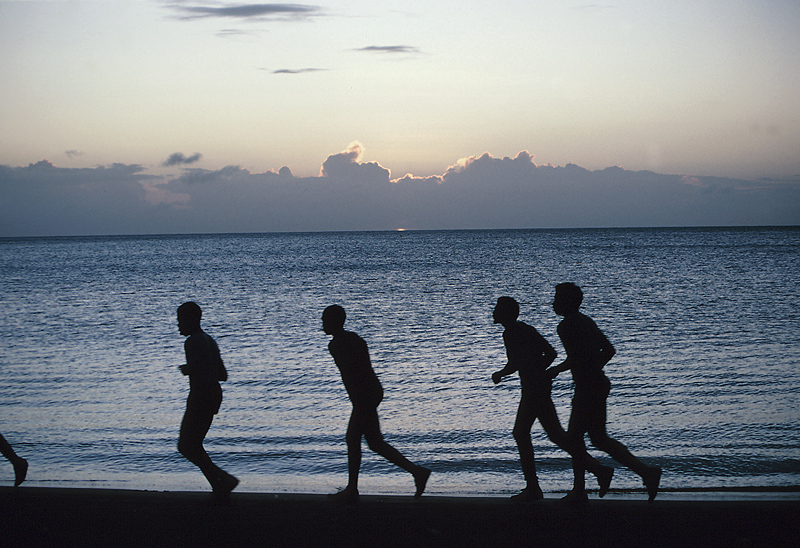

U.S. health officials issued a travel warning late Friday for 14 countries and territories exposed to the mosquito-borne Zika virus, which has been linked to a torrent of birth defects in Brazil.
The travel alert targets pregnant women and those who want to become pregnant and follows reports that thousands of babies in Brazil were born last year with microcephaly, a brain disorder experts associate with Zika exposure. Babies with the condition have abnormally small heads, resulting in developmental issues and in some cases death.
The alert, from the U.S. Centers for Disease Control and Prevention, lists the following countries and regions in Central and South America and the Caribbean: Brazil, Colombia, El Salvador, French Guiana, Guatemala, Haiti, Honduras, Martinique, Mexico, Panama, Paraguay, Suriname, Venezuela, and Puerto Rico.
The alert recommends that women who are pregnant postpone travel to those areas, and that women wanting to become pregnant consult their doctors before setting out on any trip to those areas. In all cases, the alert said, women should take steps to avoid mosquito bites.
“We believe this is a fairly serious problem,” Dr. Lyle Petersen, director of the CDC’s Division of Vector Borne Infectious Diseases, said during an evening press conference Friday.
“The virus is spreading fairly rapidly throughout the Americas and a large percentage of the population may become infected,” he said. “Because of the growing evidence that there is a link between Zika virus and microcephaly, we thought it was very important to warn people as soon as possible.”
Also Friday, the first case of Zika virus-linked brain damage in the United States was reported by health officials in Hawaii.
The Hawaii State Health Department said a baby born in an Oahu hospital with microcephaly had been infected with the virus. The CDC confirmed the presence of the virus, The New York Times reported.
The infant’s mother had lived in Brazil last May and probably was bitten by a mosquito then, when she was early in her pregnancy, the health department said.
There have been no confirmed cases of Zika virus transmission within Hawaii, state health officials said, the Times reported.
Petersen said he had no idea when the travel advisory might be lifted, noting it would probably still be in effect when the summer Olympics begin in Brazil in August.
“It’s a dynamic situation and we are just going to have to wait and see how it all plays out,” he said. “It’s really impossible for us to speculate what will happen.”
Although new test results provide new evidence of a link between Zika and microcephaly, it isn’t known if Zika alone is responsible or if other risk factors might be involved, Petersen said, adding more studies are planned to examine the link.
Between 2007 and 2014, 14 cases of Zika virus were confirmed among travelers returning to the United States from South America, Petersen said. In 2015 and so far in 2016, 12 cases have been diagnosed, he added.
The government action follows reports that at least 3,500 cases of microcephaly appeared in Brazil between October 2015 and January 2016, the CDC said.
A CDC news release added: “CDC scientists tested samples provided by Brazilian health authorities from two pregnancies that ended in miscarriage and from two infants with diagnosed microcephaly who died shortly after birth. For the two full-term infants, tests showed that Zika virus was present in the brain. Genetic sequence analysis showed that the virus in the four cases was the same as the Zika virus strain currently circulating in Brazil. All four mothers reported having experienced a fever and rash illness consistent with Zika virus disease (Zika) during their pregnancies. “
Dr. Marc Siegel, an associate professor of medicine at NYU Langone Medical Center in New York City, thinks a travel warning is wise, but said people shouldn’t assume they will get infected if they visit Brazil.
“It’s extremely rare, but it’s not impossible for a pregnant woman to get Zika on a trip to Brazil,” he noted in comments made before the alert was issued.
Meanwhile, the World Health Organization is reportedly conducting research to determine how Zika affects fetuses. Brazilian health officials think the greatest risk of microcephaly and malformations happens during the first trimester of pregnancy.
The Zika virus is spread by the Aedes mosquito — the same one that carries other diseases that infect humans, including yellow fever, West Nile, chikungunya and dengue.
The virus typically causes relatively mild symptoms — fever, headache, skin rash, red eyes and muscle aches, according to the CDC. Symptoms usually clear up within a few days. There is no vaccine or specific drug to treat this virus.
Besides South America and Puerto Rico, outbreaks of Zika virus have been reported in the past in Africa and Southeast Asia.
More information
For more information on Zika virus, visit the U.S. Centers for Disease Control and Prevention.
Source: HealthDay
Copyright © 2024 HealthDay. All rights reserved.

Leave a Reply